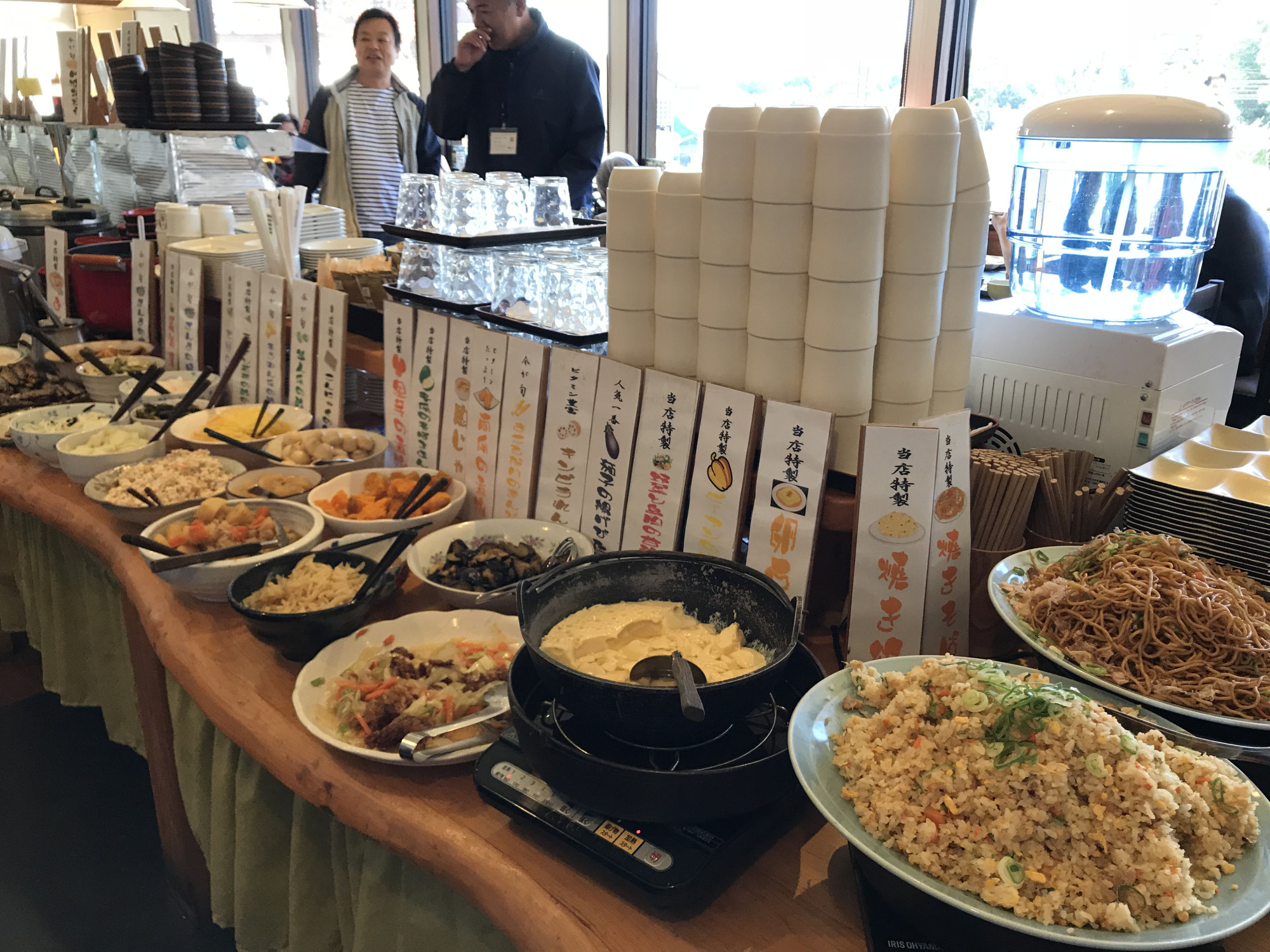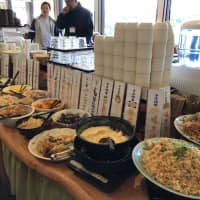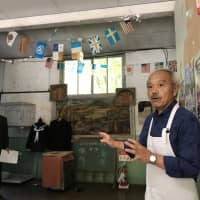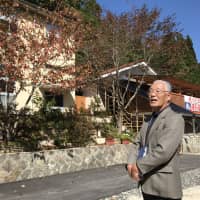Participants set out for study tours in the town of Jinsekikogen in Hiroshima Prefecture on Oct. 21, following discussions and other programs at the Jinseki Kogen Hotel during a two-day event.
The event covered topics related to satoyama (mountains and woods shared and maintained by residents of the adjacent rural communities) and satoumi (marine and coastal environments where biodiversity is maintained through human intervention).
It was co-hosted by the Japan Times Satoyama Consortium, the Chugoku Region Governors Association and Jinsekikogen. The study tours were held to see firsthand what efforts are being made in the town for the effective use of existing resources.
The participants chose one of the two tours. One included a visit to local restaurants called Kogen no Kaze and Gakko Shokudo, and Jinsekikogen Onsen hot spring.
The other group visited Aiqon Store, which sells products made of konnyaku (a jelly-like food made from starch), Peace Wanko Japan, a nonprofit facility that rescues dogs from public animal shelters, where they would be put down if no one adopts them, and Jinseki Kogen Tiergarten that offers a variety of hands-on nature activities.
Kogen no Kaze is a restaurant attached to a michi no eki, a roadside rest area, in Jinsekikogen. It was initially opened 24 years ago under a different name and management, and renovated as a buffet-style restaurant in 2011.
Tsuyoshi Mizumoto, the head of the Regional Revitalization Project, a nonprofit that runs the restaurant, spoke to tour participants.
"We have 11 staff members aged from 24 years old to over 70. Most of them are wives of local farmers," he said. "We buy the vegetables they bring from their farms that they cook and serve at the buffet. We have the utmost confidence in the provenance of our food."
A variety of local and Japanese traditional dishes filled the central buffet counter. Mizumoto said that he is glad to see the workers taking pride in their local ingredients and culture. Though the restaurant is open only for lunch from 11 a.m. to 3 p.m., it earns approximately ¥40 million annually.
Most of the customers they serve on weekdays are the local residents, and there is demand for delivery due to the aging of the local population. "So we also make bento that we not only sell here, but also deliver to our customers' homes," Mizumoto said.
Since 2017, Mizumoto added rental of mobility assistance equipment, such as wheelchairs, to their business portfolio.
"We have seen our customers grow older and face health problems over the years. Welfare service and delivery is what we need to improve the lives of our customers and to maintain our relationship with them for a long time," he said.
At Gakko Shokudo, Susumu Tokunaga, who manages the restaurant with his wife, greeted the group with his pony, goat and dog. As the name — which translates to "school cafeteria" — suggests, the restaurant is housed in an old elementary school building that ceased operations in 1984.
The inside is preserved as it was when it was filled with local children, with some additional antique items on display such as old electric appliances, signboards, posters, tins and other miscellaneous goods from Tokunaga's collection.
"The restaurant opened in 2007, and it was five years after the launch when we started to receive younger customers who said they learned about us via SNS," Tokunaga said. "Obviously those people do not come here for nostalgia. They see novelty and uniqueness instead."
Changing times have even made this place into a popular photo shoot location for cosplayers.
"My next mission is to find the next school principal after myself," said Tokunaga, smiling as he spoke about his hope to find a successor.
Jinsekikogen Onsen, which opened last June, is a 100 percent natural radon hot spring with no added water. It is also exclusively run by the local people of Jinsekikogen.
Koki Fujita, who has been serving as a town councilor for nearly 20 years, heads the local association that manages the hot spring.
"We collected investments from individuals and enterprises in and out of the town who are willing to support the project, which amounted to ¥40 million — just enough to build the facility," Fujita said.
"We are aiming to keep it an independent project of the community that is sustainable without the public support. To do that, we need at least 30 customers a day," he said.
This series introduces municipalities and local companies promoting the beauty and excellence of deep Japan.






















With your current subscription plan you can comment on stories. However, before writing your first comment, please create a display name in the Profile section of your subscriber account page.